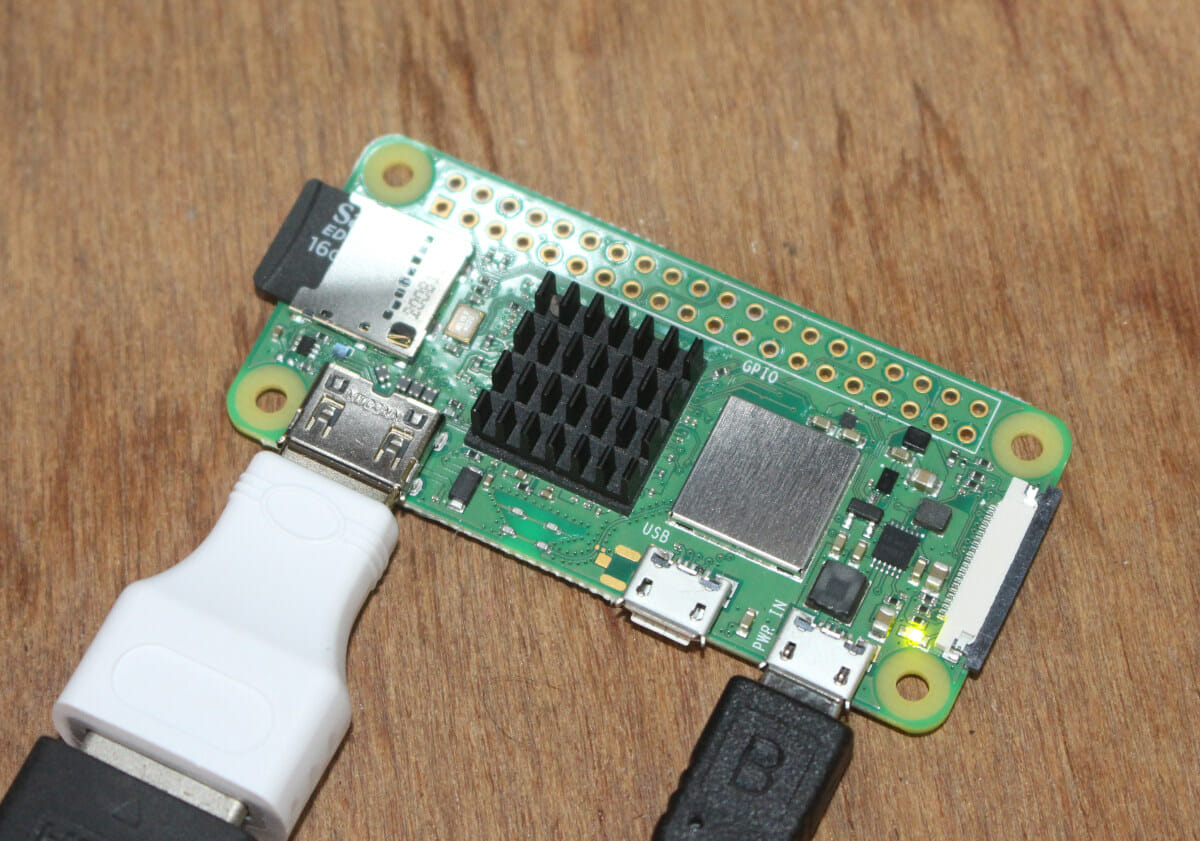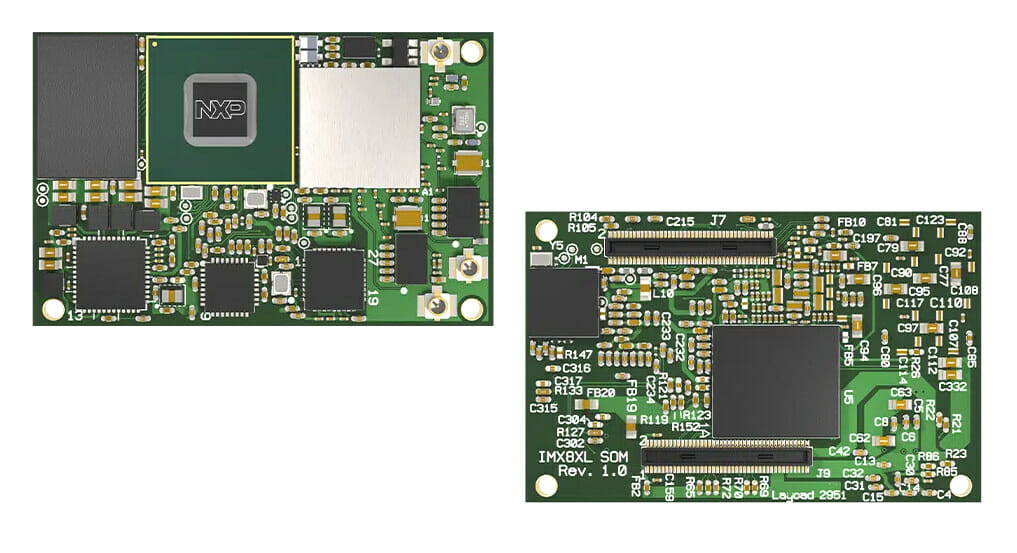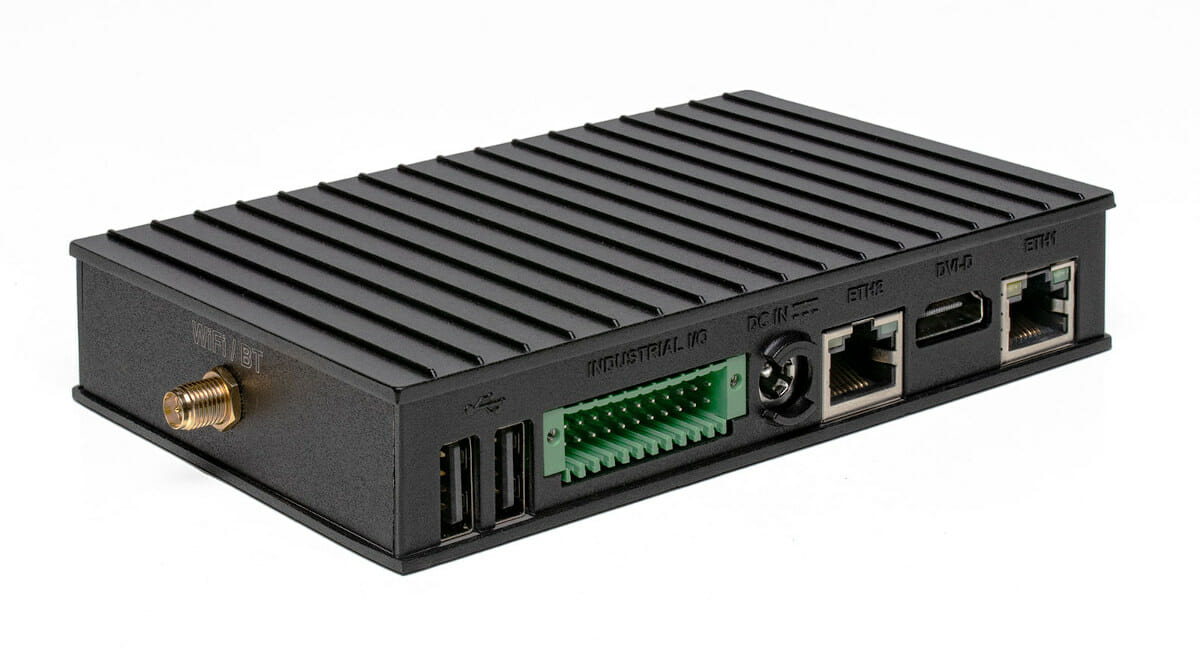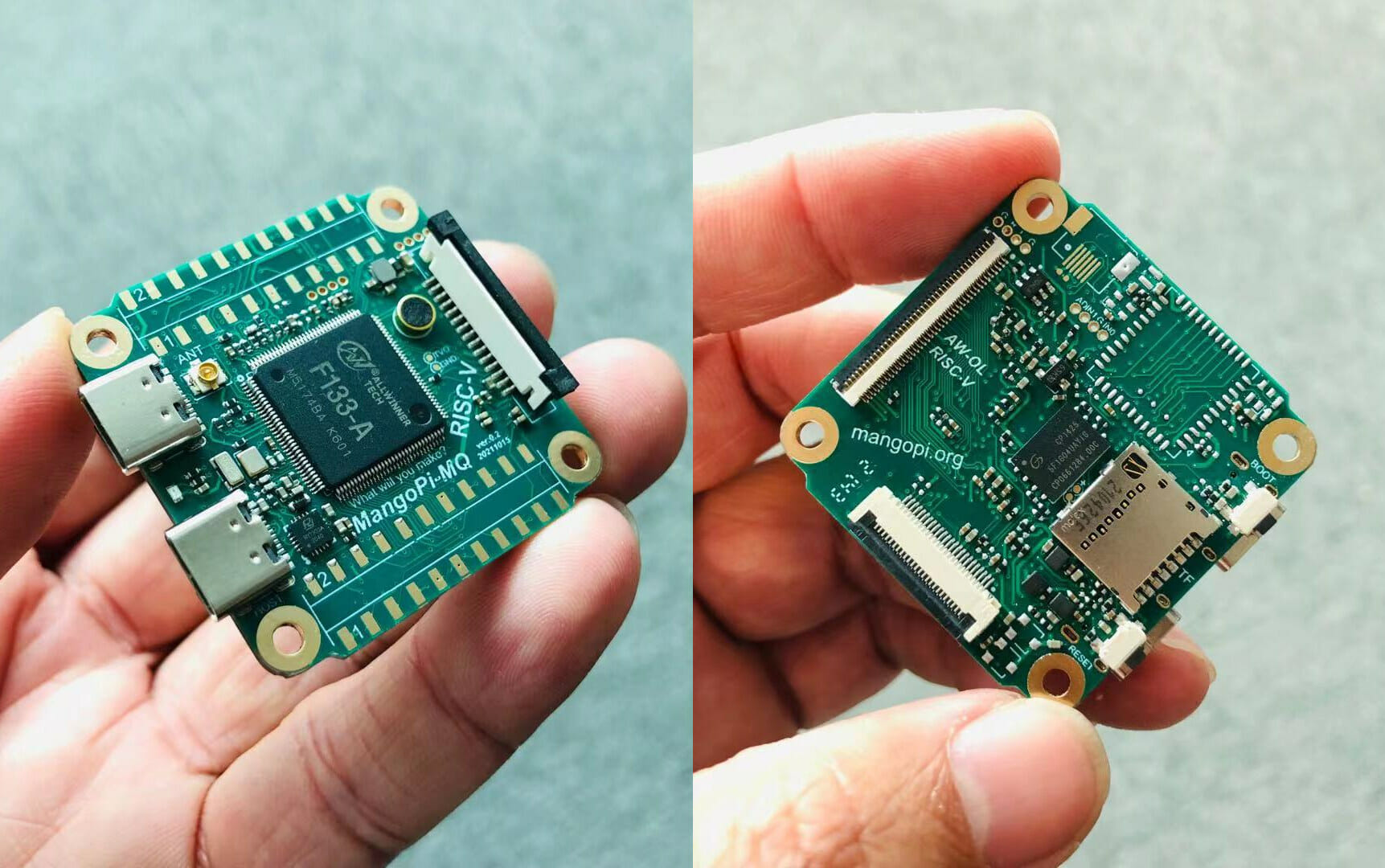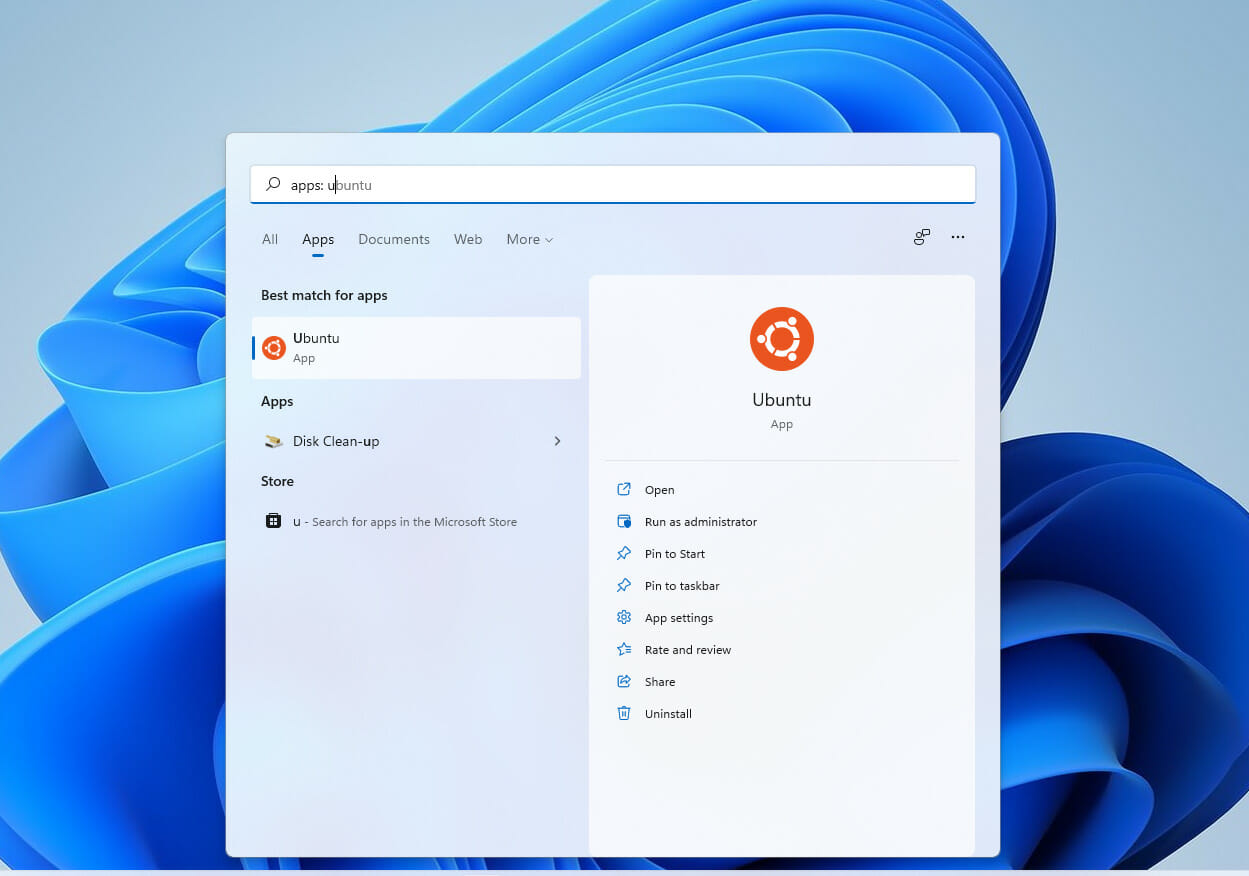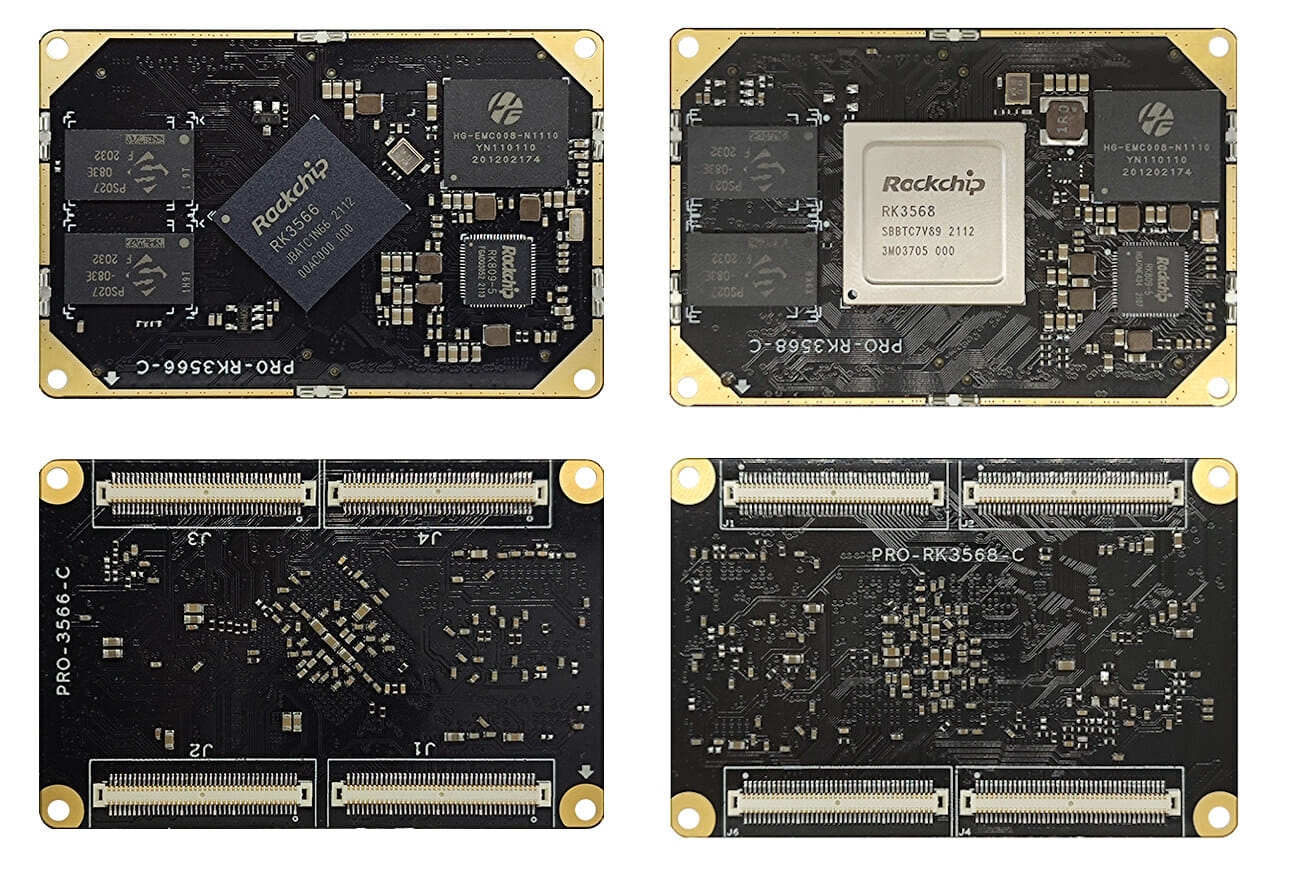The Raspberry Pi Foundation launched the Raspberry Pi Zero 2 W board yesterday with the main difference against Raspberry Pi Zero W board being the much faster Raspberry Pi RP3A0 SiP with a Broadcom quad-core Cortex-A53 processor clocked at 1.0 GHz and overclockable to 1.2 GHz. I received my sample shortly after publishing the announcement, and I had time to test it. Since the main difference is the processor, I’ll focus this review on benchmarks and whether additional cooling is required for the board. Raspberry Pi Zero 2 W kit unboxing If you purchase the board for $15, that’s all you’ll get, but Raspberry Pi Trading sent me a kit with Raspberry Pi Zero 2 W SBC, a USB OTG adapter, a mini HDMI to HDMI adapter, the CSI camera cable, and four rubber pad for the enclosure that comes with three covers: full, hole for 40-pin GPIO header, or […]
SolidRun i.MX 8XLite SoM embeds DSRC modem, GPS for V2X automotive applications
The GPU-less NXP i.MX 8XLite Cortex-A35/M4 SoC was just announced earlier this month for V2X and IIoT applications, and now SolidRun unveiled the first module based on the new processor with the “i.MX 8XLite System-on-Module”. Also equipped with a RoadLINK SAF5400 safety modem, SolidRun’s Mini SoM targets vehicle telematics, vehicle-to-vehicle (V2V) and vehicle-to-infrastructure (V2I) communications, road infrastructure connectivity, and industrial equipment. SolidRun i.MX 8XLite specifications: SoC – NXP i.MX 8XLite single or dual-cire Cortex-A35 processor @ 1.2 GHz, with Cortex-M4F real-time core System Memory – 1GB LPDDR4 with inline ECC Storage – 8GB eMMC flash Ethernet – NXP TJA1100 100BASE-T1 Automotive Ethernet transceiver Wireless NXP RoadLink SAF5400 DSRC/802.11p (V2X) single modem dual antenna (u.FL connectors) GNSS module for GPS 2x Hirose DF40 board-to-board connectors with: Storage – SD/MMC card, PCIe SSD Ethernet – 100BASE-T1 Automotive Ethernet USB – 2x USB 2.0 PCIe – 1x PCIe Low-speed interfaces – 2x I2C, […]
Picovoice Cobra Voice Activity Detection Engine shown to outperform Google WebRTC VAD
Picovoice Cobra Voice Activity Detection (VAD) engine has just been publicly released with support for Raspberry Pi, BeagleBone, NVIDIA Jetson Nano, Linux 64-bit, macOS 64-bit, Windows 64-bit, Android, iOS, and web browsers that support WebAssembly. Support for other Cortex-M and Cortex-A based SoCs can also be made available but only to enterprise customers. Picovoice already offered custom wake word detection with an easy and quick web-based training and offline voice recognition for Raspberry Pi, and even later ported their voice engine to Arduino. Cobra VAD is a new release, and, like other VADs, aims to detect the presence of a human voice within an audio stream. Picovoice Cobra can be found on Github, but note this is not an open-source solution, and instead, libpv_cobra.so dynamic library is provided for various targets, together with header files and demos in C, Python, Rust, and WebAssembly, as well as demo apps for iOS […]
ODROID-GO Advance Black Edition is selling for $29.50 (Promo)
Hardkernel is having a “Black Friday” sale for the ODROID-Go Advance Black Edition portable game console that is now selling for $29.50, or exactly half of the normal price ($59.00), with either the transparent or black enclosure. As a reminder, the OGA Black Edition is a Linux console powered by a Rockchip RK3326 quad-core Arm Cortex-A35 processor coupled with 1GB RAM and a 3.5-inch display. This model builds on the earlier ODROID-Go Advance model by adding a WiFi & Bluetooth module, a USB-C port for charging, as well as some extra buttons. ODROID-Go Advance Black Edition specifications: SoC – Rockchip RK3326 quad-core Arm Cortex-A35 processor @ 1.3GHz with Mali-G31 MP2 GPU System Memory – 1GB DDR3L @ 786Mhz, 32 Bits bus width Storage – 16MB SPI Flash for bootloader, Micro SD Card slot (UHS-1 Capable interface) Display – 3.5″ 320×480 TFT LCD (Wide-viewing angle display, MIPI-DSI interface) Audio – 3.5mm […]
CompuLab IOT-GATE-RPI4 gateway targets industrial control and monitoring
Compulab IOT-GATE-RPI4 is another industrial gateway based on the Raspberry Pi CM4 module that offers a different feature set and form factor compared to solutions like TECHBASE iModGATE-AI gateway or QWave Systems CatsPi Industrial carrier board. Designed with industrial control and monitoring in mind, the IOT-GATE-RPI4 gateway offers multiple RS485, RS232 and CAN FD ports, Ethernet, 4G LTE/4G, WiFi 802.11ac, and Bluetooth 5.0 connectivity, as well as a wide -40°C to 80°C operating temperature range, plus a wide input voltage from 8V to 36V as well as PoE support. Compulab IOT-GATE-RPI4 specifications: SoM – Raspberry Pi Compute Module 4 (CM4) with SoC – Broadcom BCM2711 quad-core ARM Cortex-A72 @ 1.5GHz plus VideoCore IV GPU with H.265 (4Kp60 decode), H.264 (1080p60 decode, 1080p30 encode) System Memory – 1GB to 8GB LPDDR4 Storage – 16GB to 128GB eMMC flash soldered on-board Secondary Storage – 64GB – 256GB NVMe flash via optional module […]
Allwinner D1s/F133 RISC-V processor integrates 64MB DDR2
Allwinner D1s (aka F133) is a cost-down version of Allwinner D1 RISC-V processor introduced earlier this year together with a Linux capable development board, with the main difference being the integrated 64MB DDR2. Besides the built-in RAM, Allwinner D1s comes with many of the same features as D1 RISC-V SoC, but loses HDMI output and the HiFi 4 audio DSP, and Allwinner made some tweaks to the IOs with one less I2S audio interface, and general-purpose ADC. Allwinner D1s/F133 specifications: CPU – RISC core with 32 KB I-cache + 32 KB D-cache (CNXSoft: not specified, but probably the same Alibaba/T-Head Xuantie C906 RISC-V core as used in Allwinner D1) DSP – HiFi4 DSP 600MHz with 32 KB I-cache + 32 KB D-cache, 64 KB I-ram + 64 KB D-ram Memory – 64 MB DDR2 (SIP) Storage I/F – SD3.0, eMMC 5.0, SPI Nor/Nand Flash Video Engine Video decoding H.265 up […]
How to upgrade a mini PC to Windows 11 and install WSL
In this short article, I show how to install Windows Subsystem for Linux (WSL) and how to force the upgrade of Windows 10 to Windows 11 in a mini PC rather than waiting for Windows to offer it. The reason I’ve coupled these two topics together is not because there is any dependency, but simply as I use WSL to help me perform administrative tasks like downloading and copying files when installing applications on Windows mini PCs. WSL installation Installing WSL has recently become so simple it is worth doing just to gain the flexibility it offers for so little effort. Now you only need to open ‘Windows Terminal (Admin)’ and enter wsl –install: then reboot for Ubuntu to start installing, during which you will be asked to create your user with a password, which finishes in Ubuntu: Further information about installing WSL can be found in Microsoft’s documentation. Now […]
Rockchip RK3566/RK3568 SoM’s feature board-to-board connectors or castellated holes
Rongpin Electronics has designed RK3566 and RK3568 systems-on-modules (SoM) with either board-to-board connectors or castellated holes for direct soldering to the carrier board, which adds competition to the Firefly Core-3568J AI Core Rockchip RK3568 system-on-module offered in a SO-DIMM form factor with an edge connector. The Rongpin Pro-RK3566 and Pro-RK3568 core boards are equipped with four high-speed Hirose connectors, while the RP-RK3568 Core board exposes I/Os through castellated holes around the four sides of the CPU module. Rongpin Pro-RK356x system-on-module & devkit Specifications: SoC – Rockchip RK3566/RK3568 quad-core Cortex-A55 processor @ 2.0 GHz with Arm Mali-G52 2EE GPU with support for OpenGL ES 1.1/2.0/3.2, OpenCL 2.0, Vulkan 1.1, 0.8 TOPS NPU for AI acceleration, 4Kp60 H.265/H.264/VP9 video decoding, and 1080p100 H.265/H.264 video encoding System Memory – 2GB DDR4 (option for 4GB) Storage – 8GB eMMC 5.1 flash (option for 16GB to 128GB) 4x Hirose board-to-board connectors with Storage 1x SATA […]


